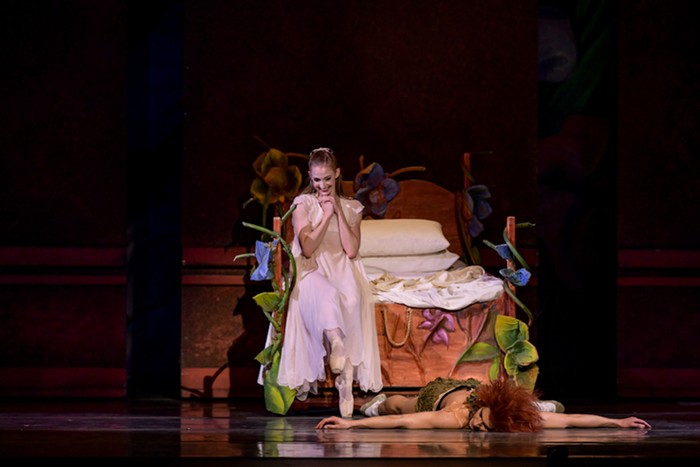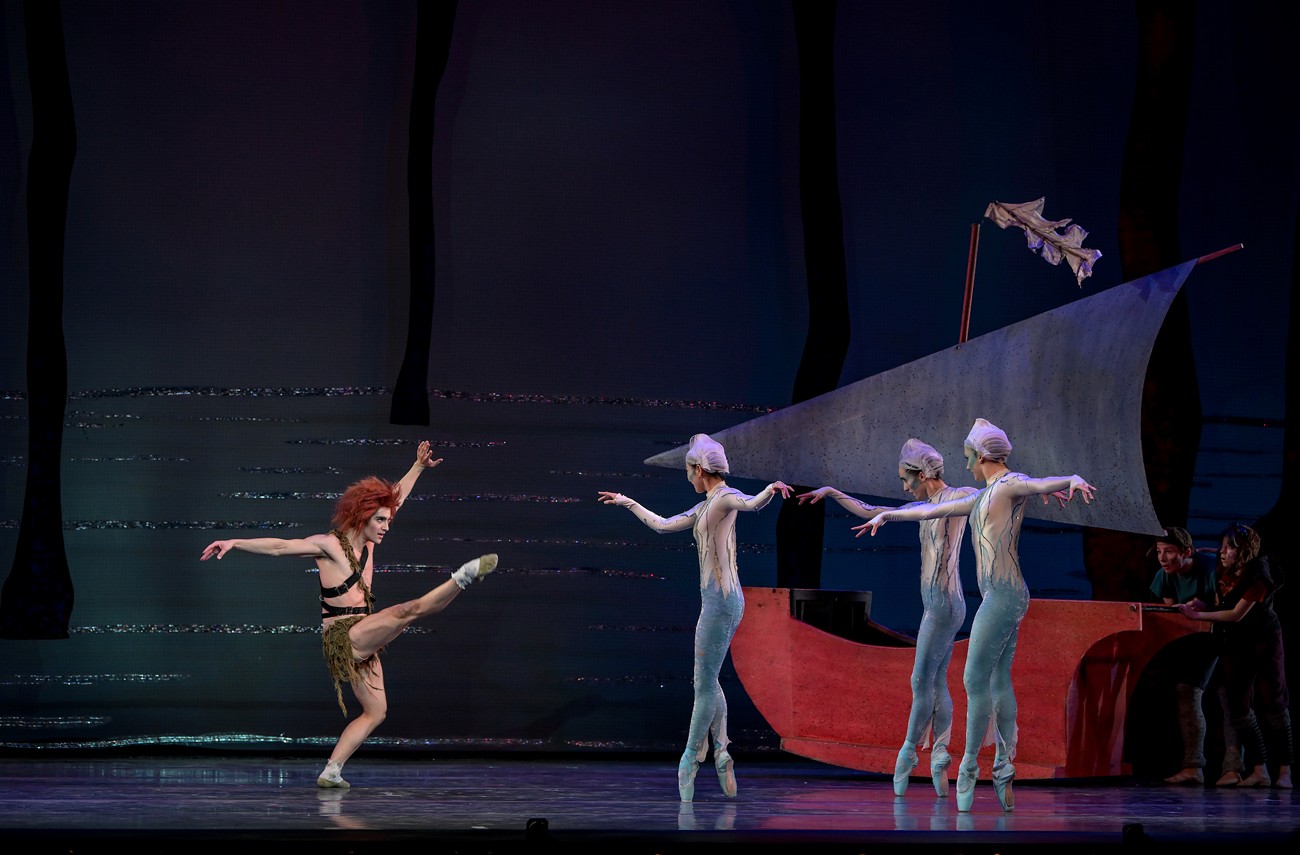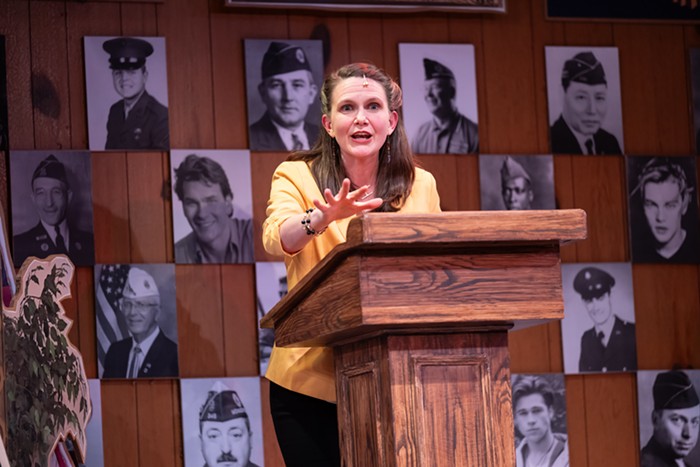Since his arrival in this world in 1902 via the pen of Scottish writer J.M. Barrie, Peter Pan has proven to be one of fiction’s most malleable characters. He has inspired multiple books, films, stage productions, and TV specials. The boy who wouldn't grow up has been such a presence in popular culture, it's a wonder it took until 2001 for someone to finally turn him into the star of a ballet.
The idea to do so originated with the Oregon Ballet Theatre, which commissioned choreographer Trey McIntyre to make a Peter Pan ballet. But after the funding for the project disappeared, the Houston Ballet in Texas grabbed the baton and premiered the work in 2002. Some two decades later, the OBT finally has the chance to present McIntyre’s work to Portland audiences this month.
In between its premiere down South and this past weekend’s performances at the Keller Auditorium, the ballet has been honed and streamlined to the point that its two hour runtime, including intermission, breezed by in a delightful blur of Tim Burton-esque sets and costumes and exciting dance sequences.
The story remains fundamentally the same: Peter (Bailey Shaw) bursts into the lives of the Darling children and whisks them away to Neverland where they join up with the Lost Boys and battle Captain Hook (John-Paul Simoens). But it's through McIntyre's choreography that the tale is given a sharper edge, emphasizing the divide between the kids and the grown ups, and draws out the undercurrent of sensuality brewing between Peter and Wendy (Jessica Lind)—as well as the allure of Hook.

Shaw plays Peter as far more feral. They wear little more than a grassy pair of boy shorts and a spiky nest of red hair on their head. When Peter meets Wendy for the first time, he sniffs around her like an excited dog. It's not hard to see, though, why Wendy and her siblings are so drawn to him. The character moves around—and above—the stage with a rough springy freedom. Shaw follows the script but imbues their movement with a sense of improvisation and untrained abandon. The Darling boys follow suit, flopping around the first act like sugared-up kids fresh off a day at the fair. I especially loved Ruby Mae Lefebvre’s performance as the youngest kid, Michael. In onesie PJs and an old school pilot’s cap and goggles, she buzzed around the stage and between the other dancers like a playful robin.
McIntyre contrasts all of that with the movement of the adult characters. The Darling parents (Lauren Flower and Benjamin Simoens) and the children's nanny (Leigh Goldberger), all wear Edward Gorey-like masks, and dance with stiffness akin to a marionette. They represent everything that Peter is clearly trying to avoid by staying young forever. Cutting right between the two extremes is Wendy. She shares her siblings’ attraction to the near-naked free spirit in their midst, but through Lind, she becomes the embodiment of a teen’s growing sexuality. Her solos had a diaphanous flow, matched only by the movement of the muslin nightgown she wore throughout. She is chastely attracted to Peter, but later finds herself weirdly drawn to Hook with his dandy-ish clothing and bad boy charm. (This adaptation leaves out Tiger Lily, an Indigenous character infamous for being repeatedly portrayed through a racist lens.)
At least, that's my complicated, "dumb grown up critic" read. For kids, this is an absolute blast. The fight scenes were appropriately thrilling without being too scary. Watching Peter and the Darling kids get whisked off the ground on wires is genuinely fun. And, again, the whole show whisks by, packed with bubbly energy, fairies, mermaids, and appearances by Tinkerbell. Sure, one young lad sitting behind me took umbrage with the fact that the creature on stage was an alligator and not a crocodile (as he had been promised!), but don't let the little details bog you down. Even if you don't catch the whiffs of sexual tension brewing between Peter and Wendy, it’s still a heck of a ride.
Oregon Ballet Theatre presents Peter Pan at Keller Auditorium, 222 SW Clay, through Sun Feb 25, $29-163, tickets and showtimes here, all ages, two-hour run time, with a 25-min intermission.



















